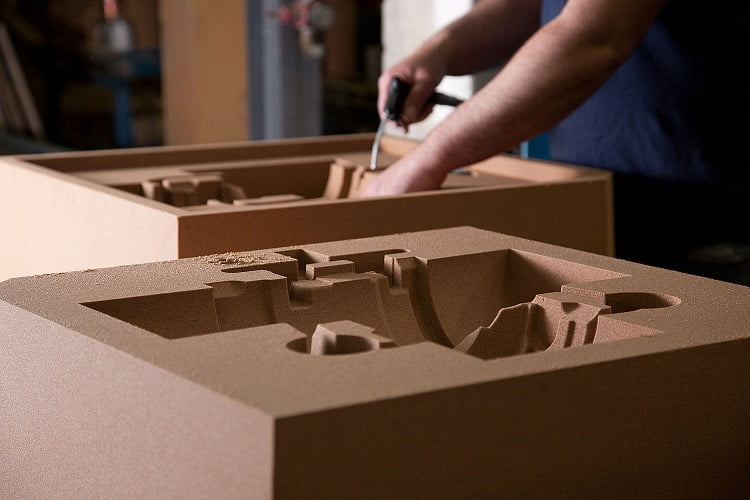Published - 12th May 2015
Shrinkage in sand casting is an issue that must be carefully managed.
Most metals, including aluminium, copper, zinc and magnesium, shrink as they solidify. The degree of shrinkage depends on the freezing range of the material. As an example, aluminium shrinks by over 6% during solidification while copper shrinks by nearly 5%.

In sand casting, solidification occurs as the molten metal is poured into the mould cavity. So, it is vital that this part of the sand casting process is carried out in a highly controlled manner to reduce shrinkage and eliminate defects.
There are two main types of shrinkage in sand casting: solidification shrinkage and pattern maker’s shrinkage.
Solidification shrinkage occurs because metals are less dense as liquids than solids. Risers and chills are used to address this problem.
Risers feed a continuous supply of molten metal to the casting as it solidifies. They play an essential role in promoting directional solidification where the metal solidifies at the furthest point first before moving towards the riser. Using this approach, the cavity forms in the riser and not the casting[1].
Chills, which are metal inserts, are also used to assist risers. They help to equalise the rate of solidification in thicker areas of the metal casting.
Pattern maker’s shrinkage occurs after the solidification process when the casting is cooled to room temperature. This phenomenon is due to thermal contraction. A shrinkage allowance must therefore be factored into the design at the start of the process.
The pattern is made larger than the desired casting to compensate for this type of shrinkage. The shrinkage allowance varies by the type of metal but the pattern may need to be as much as 2.5% larger than the original part. Furthermore, different parts of the casting may require difference allowances. So, judging these allowances requires skill and experience to ensure a high-quality finished product.
If you would like to find out more about our sand casting capabilities, please email us today at: sales@haworthcastings.co.uk or call +44 (0)1794 512685.
[1]Degarmo, E. Paul; Black, J T.; Kohser, Ronald A. (2003), Materials and Processes in Manufacturing (9th ed.), Wiley
If you have a project, talk to our experienced sales team
Contact us